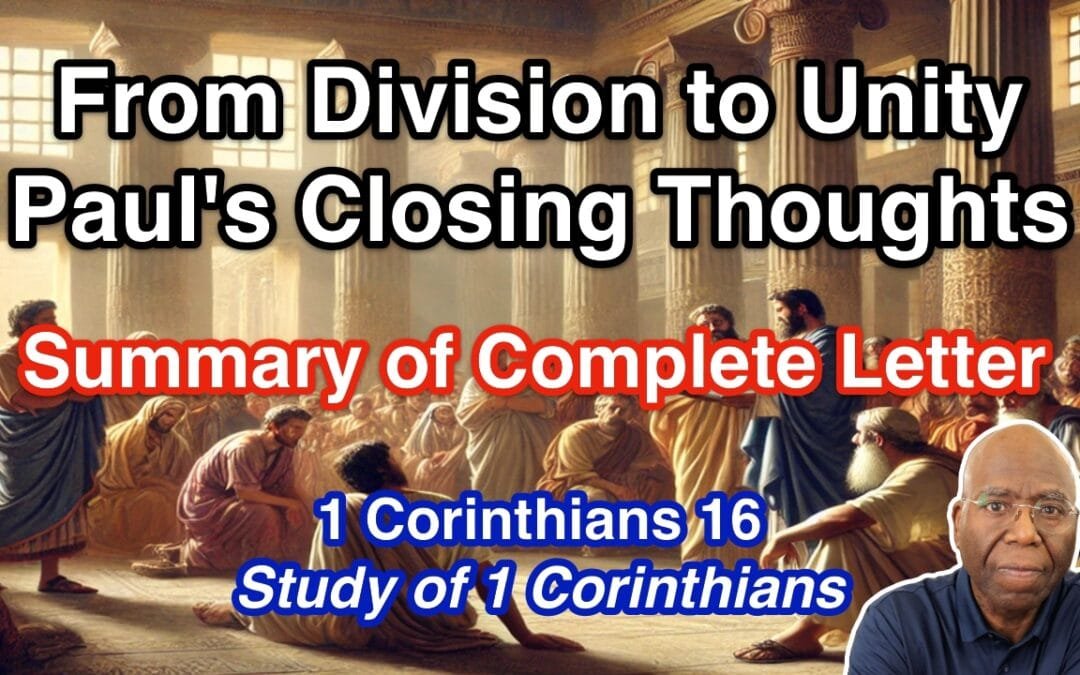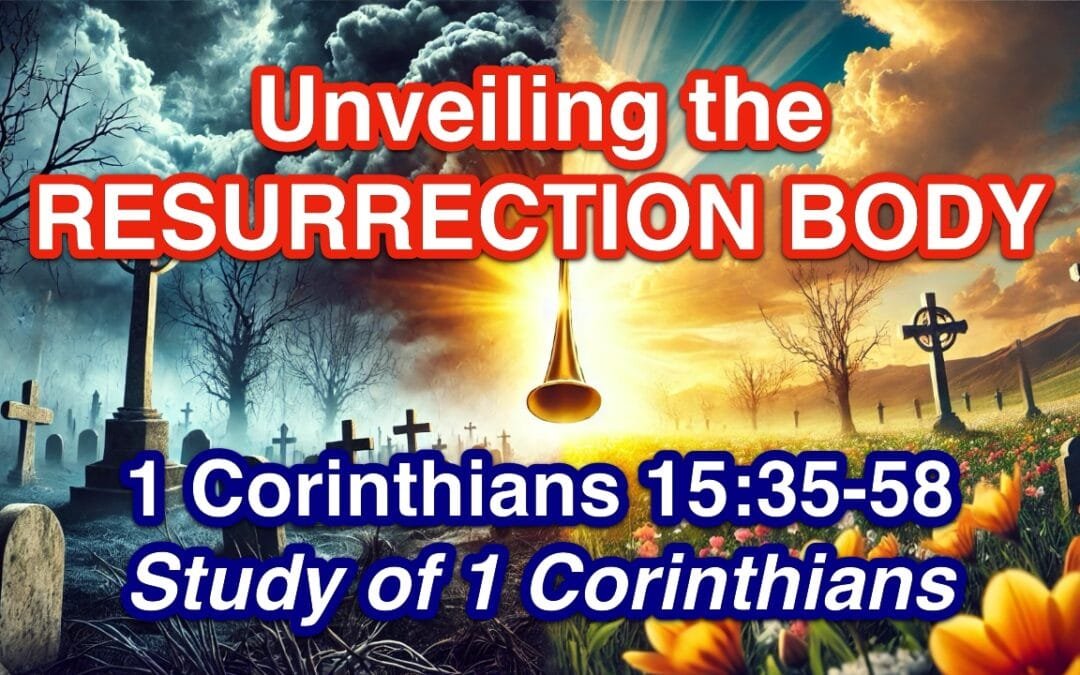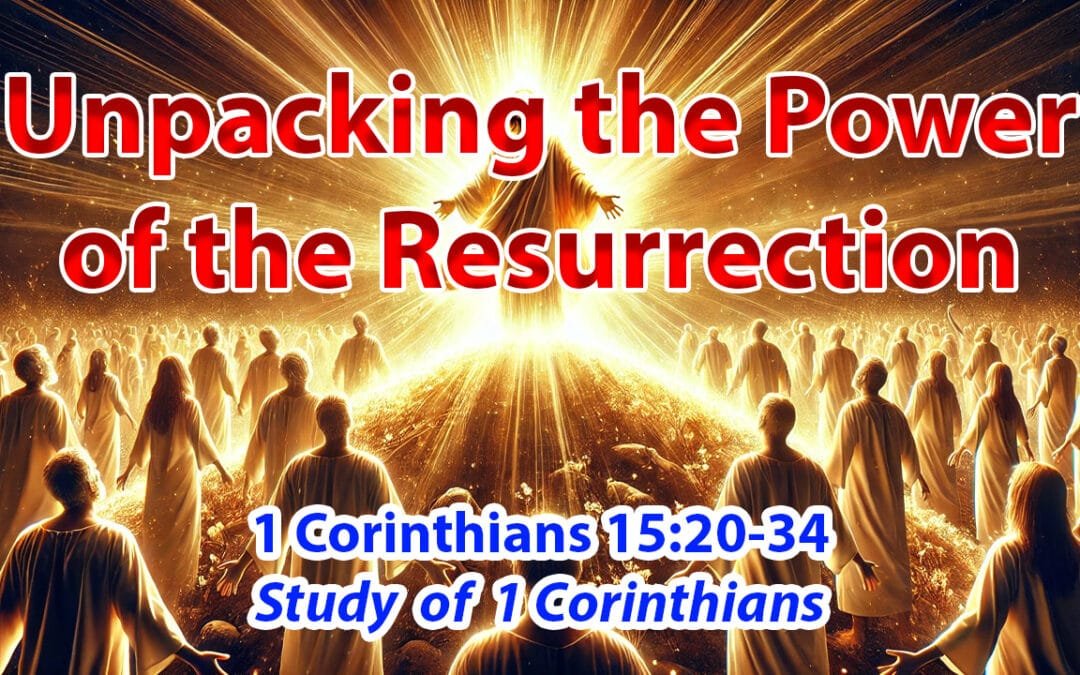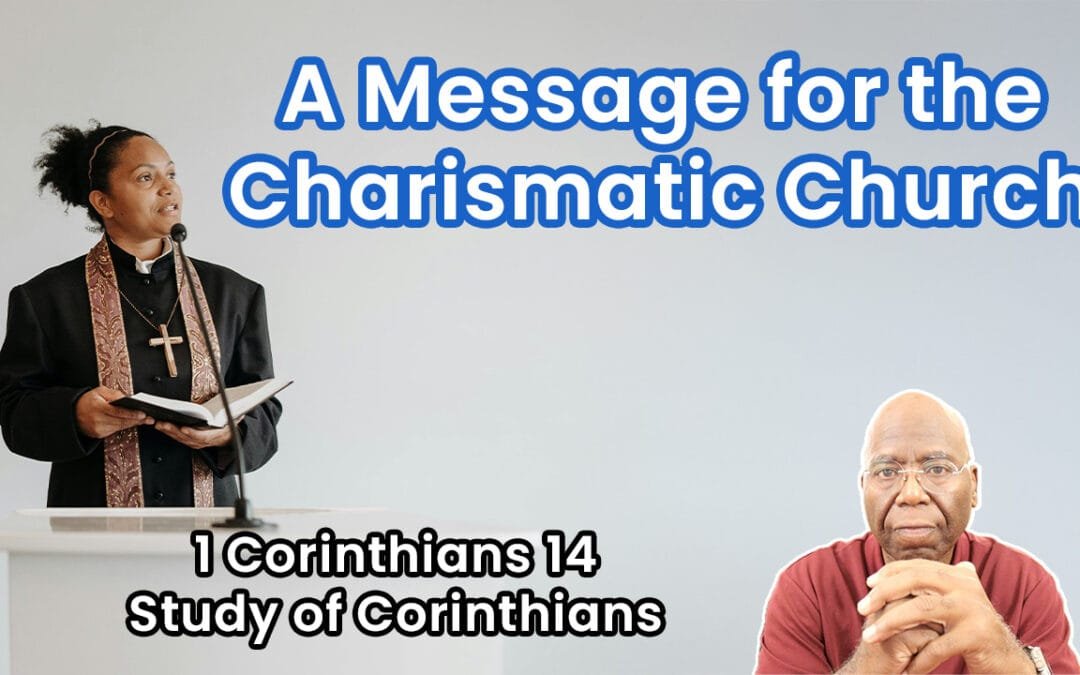
From Division to Unity: Paul’s Closing Thoughts (1 Corinthians 16)
Paul gives instructions for a collection for Jerusalem, shares travel plans, commends Timothy and Stephanas, and emphasizes unity, generosity, and love in his closing remarks.

Paul gives instructions for a collection for Jerusalem, shares travel plans, commends Timothy and Stephanas, and emphasizes unity, generosity, and love in his closing remarks.

1 Corinthians 15:35-58 explains the nature of the resurrection body, contrasting it with our current perishable, natural bodies. Paul uses the analogy of a seed to illustrate transformation: what is sown is perishable, but what is raised is imperishable, glorious, and spiritual. He emphasizes that “flesh and blood” cannot inherit the kingdom of God, necessitating a transformation at the “last trumpet.” Through Christ’s victory, death is defeated, and believers are assured of eternal life and triumph over sin.

1 Corinthians 15:20-34 highlights Christ’s resurrection as the “firstfruits” of those who will be raised, affirming the defeat of death through Him. Paul explains the order of resurrection: Christ first, then His followers at His return. He emphasizes the ultimate victory when all things are subjected to God, ending with death’s final defeat. This passage calls believers to live in light of the resurrection’s reality and to reject sin and false teachings.

Paul reaffirms the gospel message, focusing on Christ’s death, burial, and resurrection as foundational truths. He emphasizes that Christ’s resurrection was witnessed by many, including himself, underscoring its authenticity. Paul then argues that if there is no resurrection of the dead, then Christ has not been raised, which would render the Christian faith meaningless and leave believers still in their sins.

1 Corinthians 14 emphasizes the importance of order in church worship, especially in using spiritual gifts like prophecy and speaking in tongues. Paul teaches that prophecy, which edifies and instructs, is more beneficial to the church than speaking in tongues without interpretation. He stresses that worship should be conducted in an orderly and understandable way to build up the congregation and encourage unity.

Paul makes a slight tangent in his discussion of spiritual gifts to deal with how that love should be the motive by which these gifts are practiced. He also discusses the temporary nature of gifts when compared to the enduring, eternal quality of love.